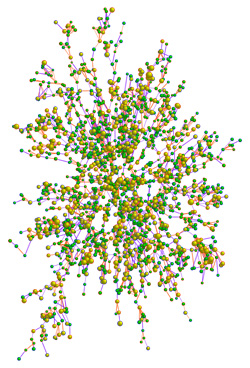 Gretchen Rubin recommends
“Act the way I want to feel:”
Gretchen Rubin recommends
“Act the way I want to feel:”
…often we feel because of the way we act. So by acting the way we wish we felt, we can change our emotions – a strategy that is uncannily effective.This is also the light side of the obesity network. If we are influenced by our friends to become obese or not, we also influence our friends.Second, the world’s reaction to us is quite influenced by the way we act toward the world. For example, in situation evocation, we spark a response from people that reinforces a tendency we already have — for example, if I act irritable all the time, the people around me are going to treat me with less patience and helpfulness, which will, in turn, stoke my irritability. If I can manage to joke around, I’ll evoke a situation in which the people around me were more likely to joke around, too.
Which leads, as always, to the same conclusion: that even though it’s tempting sometimes to think that I’d be much happier if other people would behave differently toward me, the only person whose behavior I can change is myself. If I want people to be friendlier to me, I must be friendlier. If I want my husband to be tender and romantic, I must be tender and romantic. If I want our household atmosphere to be light-hearted, I must be light-hearted.And if we want our spouses, friends, neighbors, community to be health weight, we can help them become so by doing it ourselves first. And invite our friends to exercise, to pass up the donut for an orange, to go outside instead of watch TV.
Beyond the immediate personal effects, try to persuade the local supermarket to stock High Fructose Corn Syrup (HFCS)-free cereals or grass-fed beef or local fresh vegetables. And if they won’t, start a farmer’s market or a CSA or a you-pick-em. If enough of us do it, eventually we get successes like Gatorade, Hunt’s ketchup, Wheat Thins, and many other products having HFCS removed by their vendors.
Gretchen Rubin was writing about happiness, but it’s the same principle. If you want people to be happy or healthy, start with yourself, find like-minded people, and eventually maybe it becomes the way things are.
